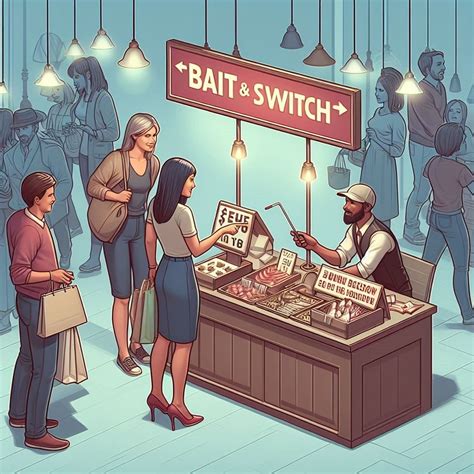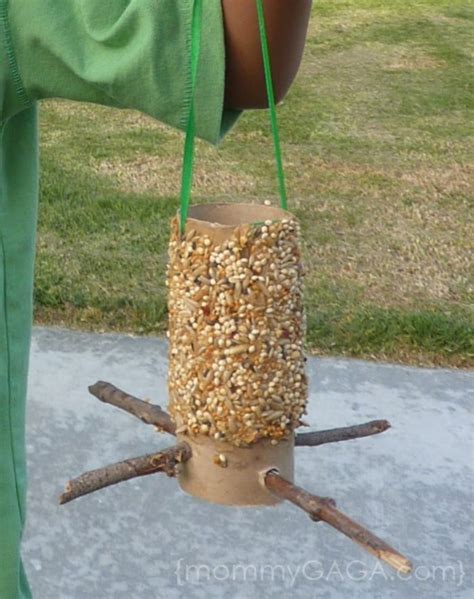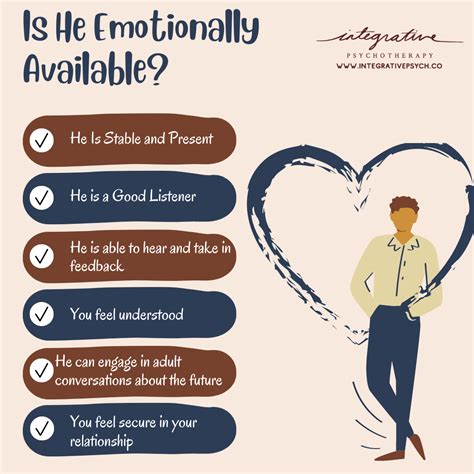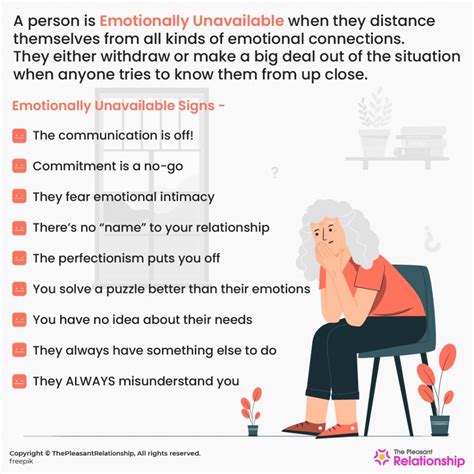
A grieving woman recently experienced further distress when she was allegedly tricked into providing free childcare for her sister-in-law’s children under false pretenses, a situation that has ignited a debate on familial obligations and exploitation.
A woman, identified only as “throwawaytime492” on Reddit, shared her upsetting experience in a post that quickly went viral, sparking a wave of reactions and discussions about the complexities of family dynamics and the boundaries of reasonable expectations during times of grief. According to her account, she had recently lost her husband and was staying with her in-laws for support. She claims her sister-in-law, referred to as “Sarah” in the post, capitalized on her vulnerable state by leading her to believe she would primarily be providing companionship to the children while Sarah ran errands. However, the reality turned out to be full-time, unpaid babysitting, leaving the grieving widow feeling exploited and resentful.
“Throwawaytime492” detailed how Sarah initially portrayed the arrangement as light and helpful, suggesting that the children, aged 4 and 6, would benefit from her presence while she was out of the house for short periods. The Reddit user explained that she was still struggling to cope with the recent loss of her husband and was finding it difficult to manage her grief. The promise of some light interaction with her nieces and nephews seemed like a welcome distraction and a way to feel useful during a period of intense emotional pain.
However, the short errands quickly turned into extended absences. The Redditor stated that Sarah started leaving earlier and returning later each day, effectively leaving her in charge of the children for the majority of the day. This included preparing meals, managing playtime, handling tantrums, and putting the children to bed. The woman felt overwhelmed and increasingly burdened by the responsibility, especially given her emotional state.
“I thought I was just keeping them company while she ran errands, but it turned into full-time babysitting,” she wrote in her post. The Redditor further explained that she had attempted to communicate her discomfort to Sarah, but her concerns were allegedly dismissed or downplayed. According to the post, Sarah justified her long absences by citing various reasons, such as needing to run extensive errands, attend appointments, or simply needing a break. Each justification served to further solidify the expectation that “throwawaytime492” would continue to provide childcare.
The situation escalated to the point where the woman felt completely taken advantage of. She explained that her grief was being compounded by the stress of caring for two young children without any prior notice or agreement. The Redditor expressed feeling as though her sister-in-law was deliberately exploiting her grief to obtain free childcare, leaving her feeling resentful and used.
The viral Reddit post generated a significant amount of attention, with thousands of users offering their support and advice. Many commenters expressed sympathy for the woman’s situation and condemned Sarah’s alleged actions. A common sentiment among the commenters was that Sarah was taking advantage of her sister-in-law’s vulnerability and grief for personal gain, highlighting what they saw as a profound lack of empathy and consideration.
“That’s awful. She’s completely taking advantage of you,” one commenter wrote. “Your grief is not a free babysitting pass for her.”
Another user suggested that the woman should set clear boundaries and refuse to continue providing childcare without proper compensation or prior agreement. “You need to tell her that you’re not a free babysitter and that you need time to grieve,” the commenter advised. “It’s okay to say no.”
Several commenters also suggested that the woman should consider leaving her in-laws’ house and finding a more supportive environment where she could focus on her healing process. They argued that staying in a situation where she felt exploited and unappreciated would only exacerbate her grief and hinder her recovery.
The Reddit post also sparked a broader discussion about the expectations and obligations within families, particularly during times of crisis. Some commenters argued that family members have a responsibility to support one another, especially when someone is grieving. However, they also emphasized that this support should not come at the expense of one’s own well-being or involve being taken advantage of.
Other commenters pointed out that the sister-in-law’s actions could be attributed to a variety of factors, such as financial constraints or a lack of alternative childcare options. However, they also acknowledged that these factors did not excuse the alleged exploitation of a grieving family member.
The debate further extended to the general topic of unpaid labor within families, particularly the expectation that women should provide childcare and household help without compensation. Many commenters argued that this expectation is rooted in societal norms that undervalue women’s contributions and perpetuate gender inequality.
As the Reddit thread continued to gain traction, some users questioned the validity of the woman’s account, suggesting that there might be more to the story than what was presented. However, the majority of commenters expressed support for “throwawaytime492” and condemned her sister-in-law’s alleged behavior.
In an update to her original post, the woman thanked the Reddit community for their support and advice. She stated that she had taken the advice of several commenters and had a conversation with her sister-in-law about her feelings. According to the update, Sarah initially reacted defensively but eventually apologized for her actions.
“I talked to Sarah, and she was defensive at first, but she did apologize,” the woman wrote. “She said she didn’t realize how much she was relying on me and that she would find alternative childcare.”
The woman also stated that she had decided to set clearer boundaries with her sister-in-law and that she would no longer be providing childcare without prior agreement or compensation. She added that she was considering moving out of her in-laws’ house and finding a more supportive environment where she could focus on her grief.
The situation highlights the complex dynamics that can arise within families, particularly during times of crisis. It also underscores the importance of setting clear boundaries and communicating one’s needs, even when it is difficult. The case serves as a reminder that grief should not be exploited and that family members should support one another in a way that is respectful and considerate of everyone’s well-being.
The viral Reddit post and the subsequent discussions shed light on the challenges that many individuals face when navigating family obligations and expectations, particularly in situations where grief, vulnerability, and power imbalances are involved. It also highlights the importance of open communication, clear boundaries, and mutual respect in maintaining healthy and supportive family relationships.
The incident continues to resonate with many online, as it touches on universal themes of grief, family dynamics, and the struggle to assert one’s needs in challenging circumstances. It serves as a cautionary tale about the potential for exploitation within families and the importance of advocating for oneself, even when it is difficult or uncomfortable.
The reaction to this story underscores a significant public awareness of the potential for emotional and practical exploitation, particularly when individuals are in vulnerable states. The internet has become a space where such experiences are shared, often resulting in supportive communities and advice that can empower individuals to address difficult situations. This particular case not only provided a platform for the woman to share her experience but also initiated a broader conversation about familial responsibilities and ethical behavior within family structures.
The incident also brings to the forefront the challenges associated with grief and the importance of having a support system that is genuinely supportive. In this case, the woman initially sought support from her in-laws but found herself in a situation that exacerbated her emotional distress. This highlights the importance of carefully evaluating one’s support network and ensuring that it is aligned with one’s needs and well-being.
The resolution, where the sister-in-law eventually apologized and agreed to find alternative childcare, underscores the potential for positive change when open communication is employed. While the initial situation was fraught with conflict and resentment, the woman’s decision to address the issue directly with her sister-in-law ultimately led to a more equitable and supportive arrangement.
However, the woman’s contemplation of moving out also reflects the potential for long-term damage to family relationships in such situations. Even with an apology and a change in behavior, the experience may have eroded trust and created a sense of distance between the woman and her in-laws.
The story also raises questions about the role of societal expectations in shaping family dynamics. The expectation that women should readily provide childcare and household help without compensation is a deeply ingrained societal norm that can contribute to exploitation and resentment. By challenging this norm, the woman’s story may inspire others to question and renegotiate traditional family roles.
The incident underscores the importance of recognizing and addressing power imbalances within families. In this case, the sister-in-law may have inadvertently or intentionally exploited her position of relative power to obtain free childcare. By asserting her needs and setting boundaries, the woman was able to challenge this power imbalance and create a more equitable dynamic.
The story also serves as a reminder that grief is a complex and multifaceted experience that requires time, space, and support. By being forced to provide full-time childcare, the woman was denied the opportunity to fully process her grief and begin the healing process. This highlights the importance of prioritizing self-care and seeking support when grieving, even when it is difficult to do so.
The case further emphasizes the need for greater awareness and understanding of the challenges faced by grieving individuals. By sharing her story, the woman has helped to raise awareness of the potential for exploitation and the importance of providing genuine support to those who are grieving.
The widespread attention garnered by this story highlights the universal appeal of themes such as family, grief, and exploitation. The internet has become a powerful platform for individuals to share their experiences and connect with others who have faced similar challenges. This can provide a sense of validation, support, and empowerment, which can be invaluable in navigating difficult situations.
In conclusion, the story of the grieving woman who was allegedly tricked into providing free childcare for her sister-in-law’s children is a complex and multifaceted one that touches on universal themes of grief, family dynamics, and exploitation. The incident underscores the importance of setting clear boundaries, communicating one’s needs, and recognizing and addressing power imbalances within families. It also highlights the need for greater awareness and understanding of the challenges faced by grieving individuals and the importance of providing genuine support. The woman’s story serves as a reminder that grief should not be exploited and that family members should support one another in a way that is respectful and considerate of everyone’s well-being. The viral response to the post demonstrates the power of online communities to provide support, advice, and empowerment to individuals facing difficult situations. It also underscores the importance of challenging societal norms that perpetuate inequality and exploitation within families. The situation serves as a cautionary tale about the potential for exploitation within families and the importance of advocating for oneself, even when it is difficult or uncomfortable.
The complexities of familial relationships are often tested during times of emotional vulnerability. Expectations, unspoken agreements, and pre-existing dynamics can either provide a robust support system or create opportunities for exploitation, as seen in this situation. The case illustrates the delicate balance between offering help and having one’s own needs and boundaries respected, particularly when dealing with grief.
The sister-in-law’s initial request for companionship for her children might have seemed reasonable, a way to include the grieving woman and offer a distraction. However, the escalation into full-time, unpaid childcare demonstrates a concerning lack of awareness or consideration for the woman’s emotional state. This highlights a common issue where individuals in distress can become targets for those seeking to benefit from their vulnerability.
The Redditor’s willingness to help initially underscores the common desire to contribute and feel useful, especially when staying with family during a difficult period. However, the gradual shift in responsibilities, without any clear communication or agreement, created a situation where the woman felt used and unappreciated. This situation highlights the importance of open and honest communication within families to prevent misunderstandings and resentment.
The online community’s reaction to the story reflects a growing awareness of the importance of setting boundaries and advocating for one’s own needs, even within family structures. The overwhelming support for the woman and condemnation of her sister-in-law’s actions demonstrate a collective understanding that grief should not be exploited and that family members have a responsibility to treat each other with respect and compassion.
The woman’s decision to confront her sister-in-law and set clearer boundaries represents a crucial step in reclaiming her agency and prioritizing her own well-being. This decision was likely influenced by the support and advice she received from the online community, highlighting the power of online platforms to empower individuals to address difficult situations.
The sister-in-law’s eventual apology and agreement to find alternative childcare suggest that she may not have fully realized the extent of her actions or the impact they were having on the woman. This underscores the importance of empathy and self-reflection in maintaining healthy relationships.
However, the woman’s contemplation of moving out also reflects the potential for lasting damage to family relationships in such situations. Even with an apology and a change in behavior, the experience may have eroded trust and created a sense of distance between the woman and her in-laws.
The story also raises questions about the role of societal expectations in shaping family dynamics. The expectation that women should readily provide childcare and household help without compensation is a deeply ingrained societal norm that can contribute to exploitation and resentment. By challenging this norm, the woman’s story may inspire others to question and renegotiate traditional family roles.
The incident underscores the importance of recognizing and addressing power imbalances within families. In this case, the sister-in-law may have inadvertently or intentionally exploited her position of relative power to obtain free childcare. By asserting her needs and setting boundaries, the woman was able to challenge this power imbalance and create a more equitable dynamic.
The story also serves as a reminder that grief is a complex and multifaceted experience that requires time, space, and support. By being forced to provide full-time childcare, the woman was denied the opportunity to fully process her grief and begin the healing process. This highlights the importance of prioritizing self-care and seeking support when grieving, even when it is difficult to do so.
The case further emphasizes the need for greater awareness and understanding of the challenges faced by grieving individuals. By sharing her story, the woman has helped to raise awareness of the potential for exploitation and the importance of providing genuine support to those who are grieving.
Frequently Asked Questions (FAQ):
1. What is the main issue in the “Grieving Woman Duped: Babysitting Bait-and-Switch at Sister-in-Law’s” story?
The core issue revolves around a grieving woman, staying with her in-laws after her husband’s death, who alleges that her sister-in-law misled her into providing full-time, unpaid childcare under the guise of simply keeping her children company while she ran errands. This bait-and-switch tactic exploited the woman’s vulnerable state and grief.
2. How did the sister-in-law allegedly trick the grieving woman?
According to the Reddit post, the sister-in-law, named Sarah, initially framed the arrangement as light and helpful, suggesting that the children would benefit from the grieving woman’s presence while she ran short errands. However, these “short errands” gradually turned into extended absences, effectively making the woman the primary caregiver for the children without her prior consent or agreement. This misleading approach constitutes the “bait-and-switch.”
3. What was the online reaction to the woman’s Reddit post?
The online reaction was overwhelmingly supportive of the woman. Commenters expressed sympathy for her situation and condemned the sister-in-law’s alleged actions as exploitative. Many users advised her to set clear boundaries, refuse to continue providing childcare without compensation, and consider moving out of her in-laws’ house to find a more supportive environment. The online community also engaged in a broader discussion about familial obligations and the importance of respecting boundaries during times of grief.
4. What was the outcome of the situation after the woman confronted her sister-in-law?
Following the advice of the online community, the woman confronted her sister-in-law, Sarah, about her feelings. Initially, Sarah was defensive, but she eventually apologized for her actions and admitted that she didn’t realize how much she was relying on her. Sarah also agreed to find alternative childcare. The woman then decided to set clearer boundaries and no longer provide childcare without prior agreement or compensation. She also considered moving out of her in-laws’ house.
5. What are the broader implications of this story beyond the specific incident?
The story highlights the complex dynamics that can arise within families, especially during times of crisis. It underscores the importance of setting clear boundaries, communicating one’s needs, and recognizing and addressing power imbalances. It also raises questions about societal expectations regarding unpaid labor within families, particularly the expectation that women should readily provide childcare and household help without compensation. Furthermore, the story emphasizes the need for greater awareness and understanding of the challenges faced by grieving individuals and the importance of providing genuine support rather than exploiting their vulnerability. The incident serves as a cautionary tale about the potential for exploitation within families and the importance of advocating for oneself, even when it is difficult or uncomfortable.
Expanded Analysis and Context
The incident, while seemingly isolated, exposes a deeper societal issue concerning the often-unspoken expectations placed on women within familial structures, especially regarding childcare. Traditionally, women have been assigned the role of primary caregivers, a role that is often undervalued and taken for granted. This expectation can lead to situations where women are pressured or guilted into providing childcare, even when they are not in a position to do so, either due to personal circumstances or other commitments. In the case of the grieving woman, her vulnerability due to bereavement made her even more susceptible to being exploited.
The sister-in-law’s actions, if the Redditor’s account is accurate, can be seen as a violation of trust and a lack of empathy. Exploiting someone’s grief for personal gain is not only unethical but also potentially damaging to the individual’s emotional well-being. The woman was not only dealing with the pain of loss but also the added stress of unexpected childcare responsibilities, hindering her ability to process her grief and recover. This situation underscores the importance of sensitivity and support when dealing with someone who is grieving, rather than adding to their burdens.
The fact that the story went viral on Reddit highlights the relatability of the issue. Many individuals have likely experienced similar situations where they felt taken advantage of by family members or friends, particularly when it comes to childcare or other forms of unpaid labor. The online community’s response also demonstrates a growing awareness of the importance of setting boundaries and advocating for oneself, even within close relationships.
The concept of “emotional labor” also comes into play in this scenario. Emotional labor refers to the effort required to manage one’s emotions and the emotions of others, often in a professional setting. However, it can also apply to personal relationships, particularly when it comes to childcare. The grieving woman was not only responsible for the physical care of the children but also for managing their emotions and providing them with emotional support, all while dealing with her own grief. This added emotional burden further exacerbated her stress and made her feel exploited.
The sister-in-law’s initial defensiveness upon being confronted suggests that she may not have been fully aware of the impact of her actions. This highlights the importance of self-reflection and empathy in maintaining healthy relationships. It is possible that the sister-in-law was simply overwhelmed with her own responsibilities and saw the grieving woman’s presence as a convenient solution. However, regardless of her intentions, her actions had a negative impact on the woman, and it was important for her to acknowledge and apologize for that.
The woman’s decision to set clearer boundaries and potentially move out represents a crucial step in protecting her own well-being. It is important for individuals to prioritize their own needs and to remove themselves from situations that are harmful or exploitative, even if it means making difficult decisions. Setting boundaries is not selfish; it is a necessary act of self-care.
The story also raises questions about the financial implications of childcare. Childcare is often expensive, and many families struggle to afford it. This financial pressure can sometimes lead to situations where families rely on unpaid labor from relatives or friends. While it is understandable that families may need to seek help from their support networks, it is important to ensure that this help is provided willingly and with mutual respect, rather than through exploitation or coercion.
In conclusion, the “Grieving Woman Duped: Babysitting Bait-and-Switch at Sister-in-Law’s” story is a complex and nuanced one that touches on a variety of important issues, including grief, familial obligations, exploitation, emotional labor, and financial pressures. The story serves as a reminder of the importance of empathy, communication, boundaries, and self-care in maintaining healthy relationships and protecting one’s own well-being.









